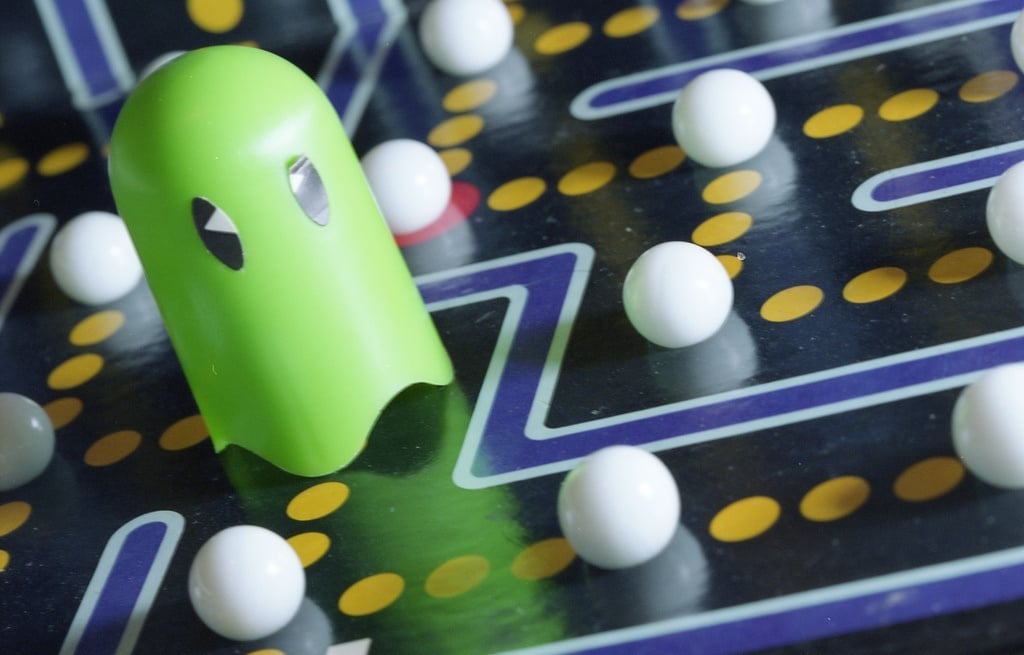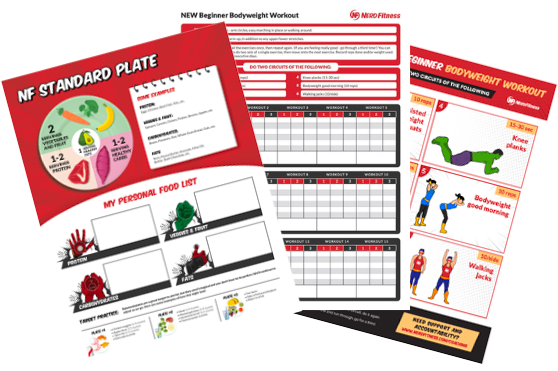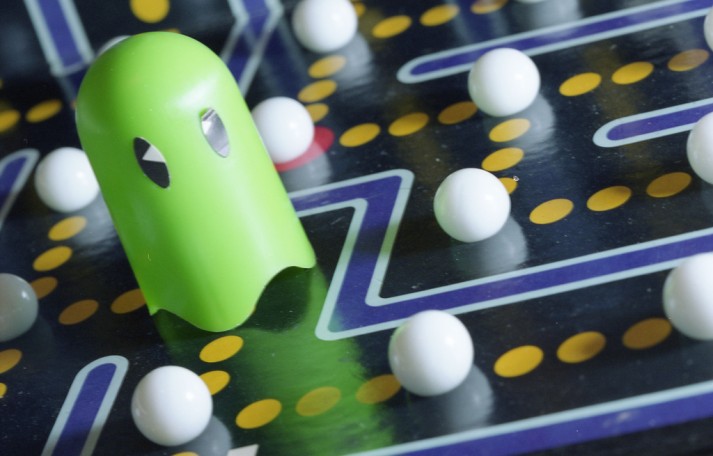
Believe it or not, hidden in our favorite video games lie the secrets to happiness.
From Zelda to Mario, Call of Duty to World of Warcraft, video games have discovered fundamental principles that can teach us how to live better, happier lives. After all, there’s a reason Nerd Fitness’s tagline has always been: “level up your life.”
No, I’m not talking about losing yourself in Sims or Second Life.
I’m talking about happiness IRL.
Does Success Equal Happiness?

How many times have you said to yourself:
- “If I just had more money, I’d be happy.”
- “If I just had a bigger TV/car/house, I’d be happy.”
- “If I just looked more like that guy/girl, I’d be happy.”
- “If I just got that promotion, I’d be happy.”
We oftentimes tie our happiness to our success on what we don’t have. Certainly ambition is important, but are we deluding ourselves by interlocking the two?
Harvard University psychologist Daniel Gilbert’s explains in Stumbling on Happiness that psychologists have “…concluded that wealth increases human happiness when it lifts people out of abject poverty and into the middle class but that it does little to increase happiness thereafter.”
In other words, once we reach a certain threshold of “financial stability,” more money generally means we spend more money on more things we don’t need (our minds quickly rationalize and adjust so that this new FANCY thing becomes normal almost immediately). Soon we’re unsatisfied and “need” something even more fancy/shiny/big…thus continuing our current path to keep up with that level of consumption.
Long story short, science has shown that oftentimes more “things” do not make us happier. But is this really news?
Unfortunately, our economy is predicated on us consuming more, buying more, buying bigger, or buying the newest thing; thus we’re taught we need those things in order to be happy (which is a lie).
Ever heard of the Adaptation Level Principle?
Researchers looked at two groups of people: people who just won the lottery and people who had recently become paraplegics.
Initially, unsurprisingly, the lottery winners experienced extremely high happiness and the paraplegic group was simply devastated. But this soon faded, and one year later both groups were more or less equally happy.
More than that, paraplegics reported being happier in everyday tasks than the lottery winners.
As it turns out, seeking happiness by chasing bigger/better/newer/shinier quickly fades, and our new ‘happy’ from those things quickly becomes our new ‘normal.’ Believe it or not, this mindset can be unproductive and outright dangerous.
So, I’m not supposed to succeed or compete?

I can hear you now: “Well that’s just great Steve, so what am I supposed to do? Start making my own pants and live in a cave?”
Don’t worry, that’s not what I’m suggesting. And I know exactly what you’re thinking. Hell, one of my life goals is to “buy an island.” Good luck doing that without trying to be successful, right?
What I AM saying, is that your monetary worth has FAR less of an impact on your happiness than a ton of other factors in your life.
I recently came across a quote from Walt Disney that I’ve truly taken to heart: “We don’t make movies to make money, we make money to make more movies.”
In layman’s terms: Spending 60 hours a week for 40 years in a job you hate, to buy things you don’t need, to impress people you don’t like…is a shitty (yeah I swore, sorry Grandma!) way to go through life.
We have a finite amount of time on this planet, and we need to decide how and where our time, energy, and attention is spent.
To borrow a quote from the late Senator Paul Tsongas (who quit politics when he found out he had terminal cancer), “ I never met a man on his deathbed who said he wished he had spent more time at work.”
“Well, what do I do then, Steve? Just quit my job and sell all of my stuff? I have a wife/kids/mortgage/etc. Be real.”
While that’s not the worst idea you’ve ever had (quitting my job and selling all of my stuff to go on adventures helped get me where I am today), we can take much smaller steps to work towards a happier life.
The Progress Principle

Have you ever played a role playing game, where you have to grind out hours of killing bad guys to level up?
Or maybe spent wayyy too many hours playing a game long after it was fun just to get that final achievement/trophy?
To many people, this might seem crazy! How can nerds do this seemingly mechanical, repetitive thing and call it fun!?
The answer?
The Progress Principle.
The experience bar, the skill tree, the achievement system.
It turns out, we LOVE making progress.
We love making progress so much that we actually enjoy it more than getting the thing we wanted in the first place! It doesn’t need to be big progress, it just needs to be enough that we realize we are moving forward, improving, getting better.
So when you see your roommate killing rats and spiders in World of Warcraft, only to return three hours later to find him doing the exact same thing, one thing has changed: he is that much closer to the next level.
Incremental improvement can be addictive.
These short term wins release dopamine, and we want more.
For us nerds, the Progress Principle can be directly and immediately applied to our lives. It tells us that we need to find a way to make small improvements and recognize those small improvements to increase our happiness. After all, if we don’t see our experience bar moving up after spending three hours killing rats, what good did it do?
So how does this apply to real life?
- Fitness – Ensure with each workout you are doing something better, stronger, or faster than the previous workout. Just as importantly, make sure you recognize that you are improving. This might mean writing down each workout and regularly reflecting on how much more awesome you are, sharing your weekly stats with friends or family or in the Woot Room, or even finding a way to fully gamify your experience. The important thing here is that we capture the benefits of the progress principle, get your brain to release that dopamine, and get you HOOKED on working out and becoming better.
- Work/School – We know that workers who are expanding their skill sets and regularly able to find solutions to day to day challenges are far happier and productive than people who don’t. As Teresa Amabile demonstrates in this TED Talk, ensuring that employees are improving is absolutely essential to keeping morale and productivity high. When you feel like you are stuck in status quo, happiness plummets. Are you stuck in a job that’s going nowhere or where your skills aren’t properly utilized? Do you feel like you aren’t learning anything new in school? I’d bet a Master Sword that picking a new skill you enjoy and working to improve it will make you happier.
Find ways to improve, and find ways to reward yourself with things that reward you back.
Mark Manson, New York Times best selling author and a rad dude, has this to say about happiness:
“Happiness not a delusional sense of contentment all the time, no matter what, simply by believing hard enough that you will be happy. It’s not a feeling or even a single emotion—and it’s definitely not the same thing as pleasure.
That’s what happiness really is—struggling through and solving problems for yourself and others. And the more problems you solve, the better your problems become, and the happier you are.”
Find “the zone”

As Jonathan Haidt describes in his book, the Happiness Hypothesis, us mammals have a basic need to “make things happen”:
Harry Harlow, a famous psychologist who studied rhesus monkeys, once took his students to the zoo. They unexpectedly found that the monkeys solved problems simply for fun. Now at the time this confused behaviorists, since they believed that all animals only reacted to positive or negative reinforcements: a prize for doing something good, or punishment for doing something bad.
It turns out, this drive is inherent in us all.
As children we seek out toys to learn more about our world, to solve simple problems and engage with our environment. As adults we love to feel productive, and similarly feel a void when we sit around doing nothing.
When we are productive and happy, Haidt defines this as “flow,” or in “the zone”: a state where you are incredibly immersed in the task at hand while incredibly productive and happy.
So, find what you like to do and be great at it. Work towards finding a job that excites you (instead of the one that pays the most money), a hobby that ignites you, and a workout that immerses you. The goal is to present yourself with challenges that you are capable of overcoming that still challenge and engage all of your attention.
Find something that is ambitious yet achievable.
“But Steve, I’m in a job that I hate and I don’t get to do things that I like or enjoy.” Quit. Maybe not today, maybe not tomorrow. But take one step every day to improve your skills that you do enjoy on your own, or take steps to find a job (or create your own) that does allow you to work on things that you enjoy.
“But what if I make less money?” Just like your brain quickly adjusts to having more and bigger things, your brain will do the same for smaller and less things. Be ruthless and cut out the crap you don’t need. The freedom to spend your days working on something that excites you is priceless compared to a job that pays you a lot of money to work on something you hate.
“I just graduated college and I’m looking for my first job, any advice?” Chase the job that inspires you and makes you feel like you’re making an impact. Don’t chase the dollar signs. Be okay with living with less. Work hard at a job that you love and you’ll have a greater chance of succeeding (and thus eventually making more money) because you actually care about what you’re doing.
To quote the late, great Steve Jobs:
“I have looked in the mirror every morning and asked myself: “If today were the last day of my life, would I want to do what I am about to do today?” And whenever the answer has been “No” for too many days in a row, I know I need to change something.”
Work on your passion daily

Now, I could write books on getting out of jobs that make you unhappy, but James Altucher, one of my blogging heroes, has already written a great article about it.
I know that’s easier said than done (though not as difficult as you might think), but that doesn’t mean you cannot challenge yourself to find “the zone” and “flow” in other parts of your life.
What sort of activities do you enjoy outside of work? Knitting? Karate? Learning a language? Playing a musical instrument? Painting? Hiking?
Find a way to make time for these things as often as possible. Challenge yourself to make room for them in a busy day, for we all know that “I don’t have time” is a big fat lie.
For example, I’m currently blocking off time to play the piano or guitar for 30 minutes a day; if I don’t make it a priority, I’ll always find some more work to do. And more work isn’t always the better decision.
Who’s in your fellowship?
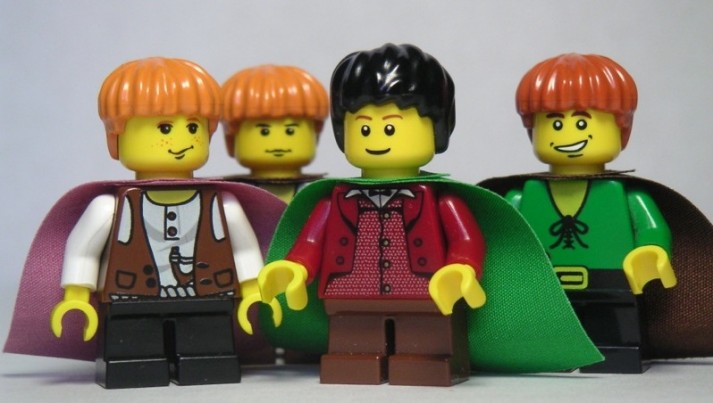
So, other than exercising more, finding more things you love and spending less time on things you don’t, what else affects our happiness?
For starters: spend more time surrounded by the people you love, and less time surrounded by people who drag you down.
As Christopher McCandless famously quoted before passing away (as noted in Into the Wild): “Happiness is only real when shared.”
Or, as Stanford researchers discovered:
“We know that people with meaningful social connections are happier than those without them. The more time that individuals spend with their partners, best friends, and close friends, the happier they are. When they spend time with people who they dislike or when they spend time alone, their happiness levels drop. Loneliness is a relatively good predictor of unhappiness.”
There’s also plenty of research that one of the best ways you can stay healthy and live longer is to increase your social connections and spend more time with friends.
How many times recently have you put off spending extra time with your friends, family, or saying yes to an adventure because “I have work to do”?
I used to do this WAY more often than I should have, as there is always something to be done with Nerd Fitness. I’m learning more and more that I need to practice what I preach, and spend as much time as possible with people who make me happy.
I’ve made a conscious effort to be more social and meet more people over the past three weeks, and I’ve noticed a marked improvement in my happiness.
There will always be work to do.
But we have a limited amount of time to spend time with friends, loved ones, or family.
Mentally level up

Last but not least, we’re giving away a free tool.
This tool will increase your happiness, energy, confidence, emotional balance, fertility, and immunity…while reducing stress, loneliness, inflammation, and risk for disease.
What is this super item?
Viagra.
Ha! Totally kidding.
It’s meditation.
No, I don’t mean putting on a fancy robe and sitting in silence for hours at a time. Meditation isn’t some fancy trick that requires you to learn an exotic song either.
It is the act of clearing your mind. For newbies, such as myself, it is helpful to focus on a single word or follow your breath.
Hey, if Ron Swanson can do it, so can you.
Why does meditation work? As Mathieu Ricard explains, it is the mind which translates experiences on the outside to either happiness or suffering. In other words, things happen every day, but it is our mind that assigns them the label of “good” or “bad.” And yet, we try so hard to make conditions great on the outside: find the perfect clothes, car, or phone.
Unfortunately, as Ricard explains, “our control on the outer world is limited, temporary, and often illusory.”
When we learn to mediate, we can teach ourselves to ignore the stuff we can’t control and focus instead on the things we CAN control. We can recognize our negative thoughts for what they are, and focus on the thoughts or lessons learned that make us happier.
Along with that, meditation can improve your attention span and self regulation and can even lead to a longer life.
Leo Babauta, creator of the uber popular Zen Habits, has created a great resource on getting started with meditation.
Weirded out or intimidated about meditation? I was too. So I started with just one minute each day in the morning. Even then, my brain still ran amok in that minute. However, after a few weeks of focusing on just my breathing, I got better. One minute became two minutes, which will become three, then four…
Give it a shot.
Be grateful
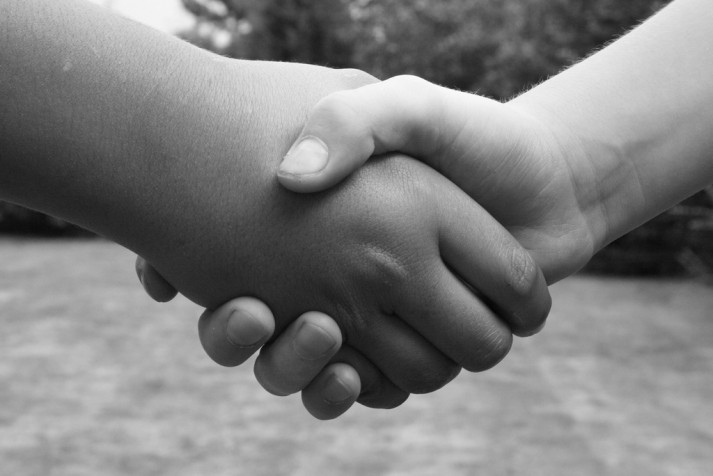
If beginning your day with clearing your mind can make you happier, what end of day can you take to make you happier?
Be grateful.
Oftentimes we are unhappy because we spend our time wishing we were like somebody else, or had something else, or were doing something else. Our reality doesn’t match up with the idealized version we had in our minds, and thus our happiness is out of balance.
Rather than complaining about what you don’t have, focus on what you DO have that is awesome.
As Eric Baker points out (in this AWESOME post on happiness), “Bronze medalists are happier than silver medalists. Why? They feel grateful to get a medal at all.”
Be grateful, be thankful (when was the last time you hand-wrote a “thank-you” note?) and remind yourself of it daily.
Try this:
Every night before you go to bed, write down three things that went well that day. Use Evernote, a word doc, or a journal on your nightstand, but keep a record! Look back on the journal when you are feeling unhappy and reflect on all of the awesome things that have happened recently.
The daily habit of happiness
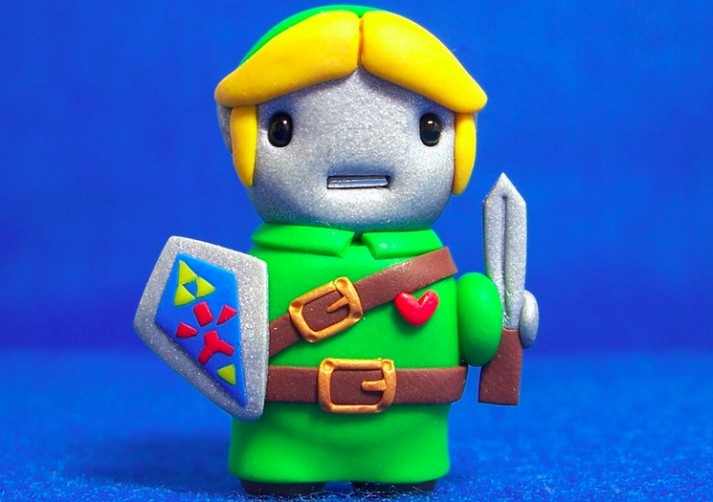
“Happiness is not a reward, it’s a consequence.”
Find a way to work on the areas of your life above every day and you’ll find that your outlook and happiness can improve. This is one of my longer articles (which is saying something), so I’m going to recap it all for you into actionable steps.
Here’s how to build the habit of making yourself happier:
- When you wake up, try meditating before checking your phone or turning on your computer. Even if it’s only for two minutes.
- Do what you can to spend your time on projects you love, and less time doing work that doesn’t make you happy.
- Spend less money on things and instead on experiences.
- Spend time each day in “the zone” on a passion, project, or activity you love. Build something, make something, do something.
- Incrementally improve your health, and reward yourself for it. Pick an activity or exercise to improve your physical wellbeing. You’re in the right place!
- Spend more time with people you love, and less time with people that drag you down. Don’t have friends or a partner? Work on your skills to find them!
- Be grateful every day for the things that have gone right. Keep a record to remind yourself of these things.
Here is your homework: Pick ONE thing above to focus on today. That’s already an improvement over yesterday.
As you build the habit for ONE thing above, it can contagiously spread to other aspects of your life, and you can build momentum.
I realize this is a MASSIVE subject, and this is just one humble nerd’s opinion on success and happiness.
I’d love to hear your thoughts:
What does happiness mean to you?
Are there steps you’ve taken to work on your happiness?
Did I leave something out?
-Steve
###
Photo: Pacman Ghost, Woody and the Beach, Cave, Secret of Mana, Space Mountain, Piano, Fellowship, Dhalsim, Handshake, Clay Link

